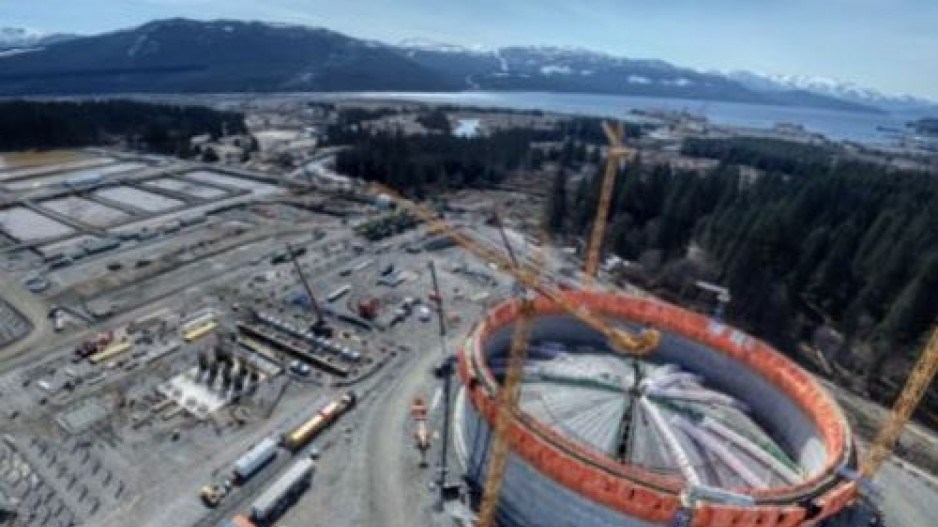As the LNG Canada project enters its third year of construction, the consortium behind it recently noted some key milestones that have been reached.
But while construction of the LNG terminal itself in Kitimat continues apace, the related Coastal GasLink project that will supply it with natural gas is running into both delays and escalating costs.
TC Energy (TSX:TRP), which is responsible for building the pipeline, recently warned that it may suspend construction activity, if it can’t resolve a dispute it is having with LNG Canada over the project’s escalating costs.
In a recent project update, LNG Canada CEO Peter Zebedee said the consortium had awarded more than $3.2 billion in contracts and procurement, of which $2.6 billion has been awarded to local and First Nation-owned businesses and contractors.
More than 4,000 workers are employed at the terminal site in Kitimat, and in recent weeks the project took delivery of some of its first major components: a 345-tonne, 50-metre long cryogenic heat exchanger (MCHE), and two precooler units, each weighing 300 tonnes each.
This summer another milestone will be reached when it caps a massive LNG storage tank with a 1,600-tonne roof.
Zebedee noted the only major hitch in the multi-billion dollar project was the Coastal GasLink pipeline, which will bring natural gas 670 kilometres from northeastern B.C. to Kitimat. In terms of construction, the CGL project is about 29% complete.
TC Energy has warned that a reduction in the project’s workforce between December 2020 and April 2021, due to the pandemic and subsequent public health orders, has put the project behind schedule and is escalating its estimated cost of completion.
When TC Energy was contracted to build the pipeline, the estimated cost was $6.2 billion. In 2019, TC Energy announced a $400 million hike to the final cost, which would bring it to $6.6 billion, due to higher than expected costs of additional metering stations, rock removal and water crossings.
That number is now likely to go up again “significantly,” although TC Energy has yet not put a number to the increase.
“As a result of scope changes, permit delays and the impacts from COVID-19, including the provincial health order, we continue to expect project costs to increase significantly along with a delay to project completion compared to the original project cost and schedule,” the company said in a recent quarterly report to shareholders.
“We remain concerned that TC Energy has proposed significant increased cost estimates to complete the pipeline, over and above the agreed cost when we took our final investment decision,” Zebedee said. “They’ve also said they will need more time to complete the work.”
TC Energy has suggested the increased costs should be covered through increased toll charges to the LNG Canada partners – Shell, Petronas, KOGAS, PetroChina and Mitsubishi. It’s clear LNG Canada isn’t happy with that proposal.
“Coastal GasLink is in dispute with LNG Canada with respect to the recognition of certain costs and the impacts on schedule,” TC Energy said in its recent quarterly report.
“If a resolution is not reached in the near term, Coastal GasLink may be required to suspend certain key construction activities but would continue with work required for safety reasons and compliance with regulatory requirements.”




